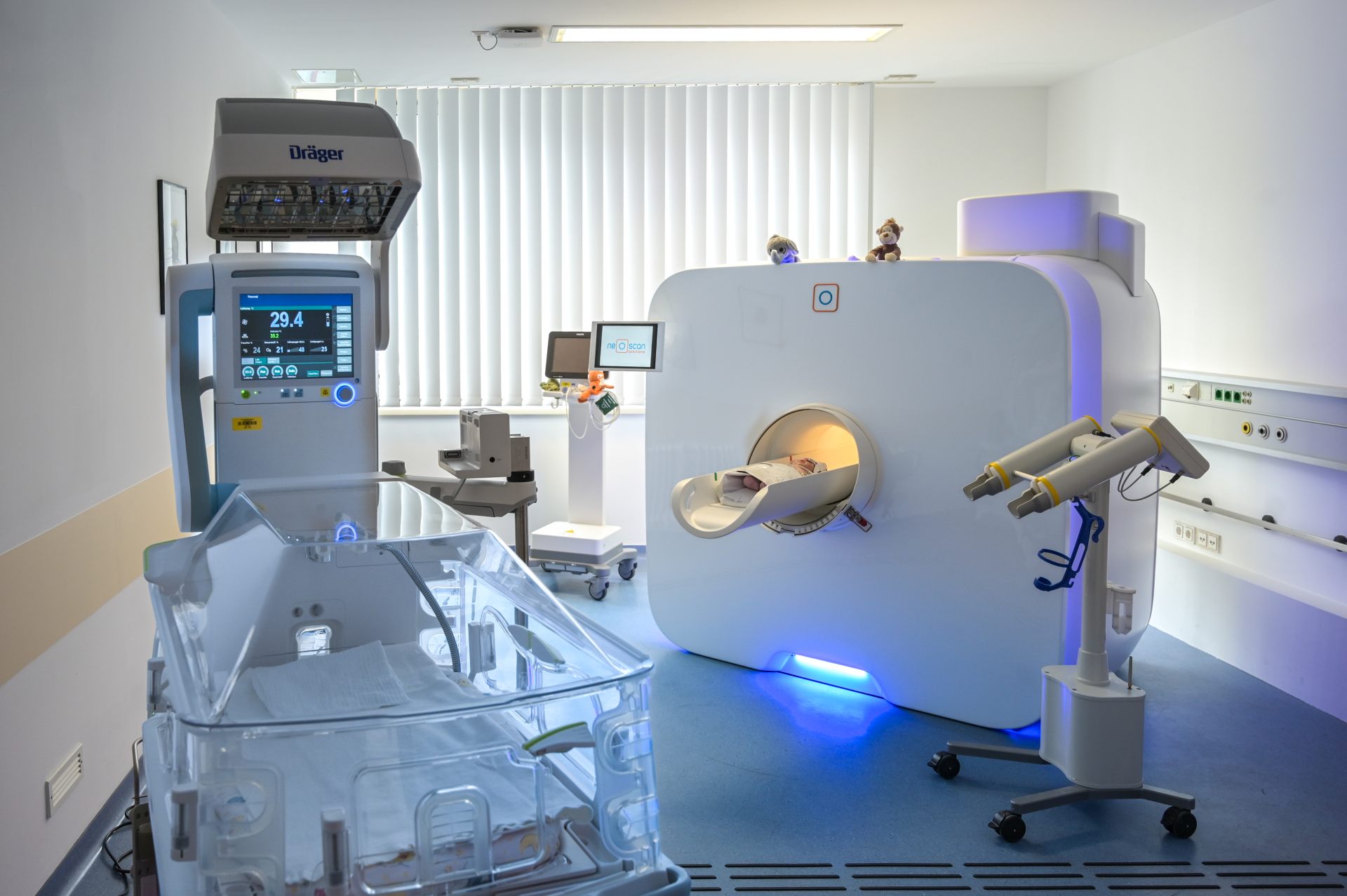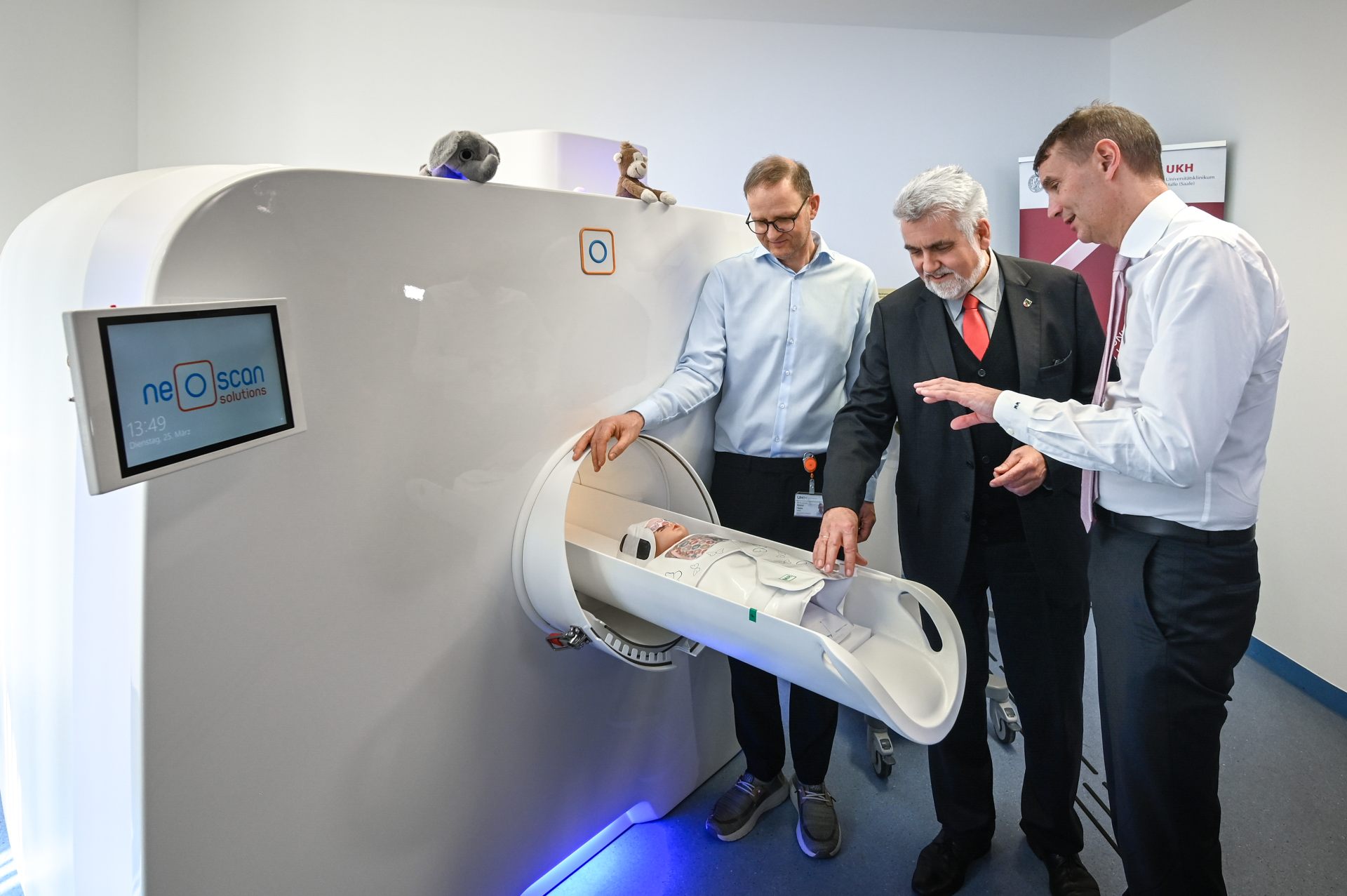NEWS
Forschungscampus STIMULATE feiert Meilenstein in der Kindermedizin: Erstes pädiatrisches MRT-System „neo315“ in Betrieb genommen
Ein großer Erfolg für die Medizintechnikforschung! Das weltweit erste speziell für Säuglinge und Kleinkinder entwickelte MRT-System „neo315“ wurde feierlich am Universitätsklinikum Halle in Betrieb genommen. Dieses bahnbrechende Gerät wurde von Neoscan Solutions GmbH entwickelt und in Zusammenarbeit mit der Otto-von-Guericke-Universität Magdeburg im Forschungscampus STIMULATE erforscht.
Das innovative MRT-System ermöglicht strahlungsfreie, patientenschonende Bildgebung direkt auf der Kinderstation – ein großer Fortschritt für die Diagnostik der jüngsten Patientengruppe. Die enge Kooperation zwischen Wissenschaft und Wirtschaft zeigt, wie aus exzellenter Forschung praxisnahe Lösungen entstehen. Dank der Unterstützung des Bundesministeriums für Bildung und Forschung und des Landes Sachsen-Anhalt wird die Technologie nicht nur in Halle, sondern bald auch in Magdeburg und darüber hinaus verfügbar sein. Das MRT wurde bereits für den US-amerikanischen Markt von der Food and Drug Administration (FDA) zertifiziert.
Für den Forschungscampus STIMULATE und seine Partner markiert dieser Erfolg einen weiteren wichtigen Schritt in der Entwicklung zukunftsweisender Medizintechnik. „neo315“ steht für innovative Diagnostik, Nachhaltigkeit und höchste Patientensicherheit – ein bedeutender Fortschritt für die medizinische Versorgung von Neugeborenen und Kleinkindern.
Research Campus STIMULATE celebrates milestone in paediatric medicine: First paediatric MRI system ‘neo315’ put into operation
A great success for medical technology research! The world's first MRI system specially developed for infants and small children, ‘neo315’, was ceremoniously put into operation at Halle University Hospital. This pioneering device was developed by Neoscan Solutions GmbH and researched in collaboration with Otto von Guericke University Magdeburg at the Research Campus STIMULATE.
The innovative MRI system enables radiation-free, patient-friendly imaging directly on the paediatric ward - a major advance in the diagnosis of the youngest patients. The close cooperation between science and industry shows how excellent research can lead to practical solutions. Thanks to the support of the Federal Ministry of Education and Research and the state of Saxony-Anhalt, the technology will soon be available not only in Halle, but also in Magdeburg and beyond. The MRI has already been certified for the US market by the Food and Drug Administration (FDA).
For the Research Campus STIMULATE and its partners, this success marks another important step in the development of pioneering medical technology. ‘neo315’ stands for innovative diagnostics, sustainability and maximum patient safety - a significant advance in the medical care of newborns and infants.

